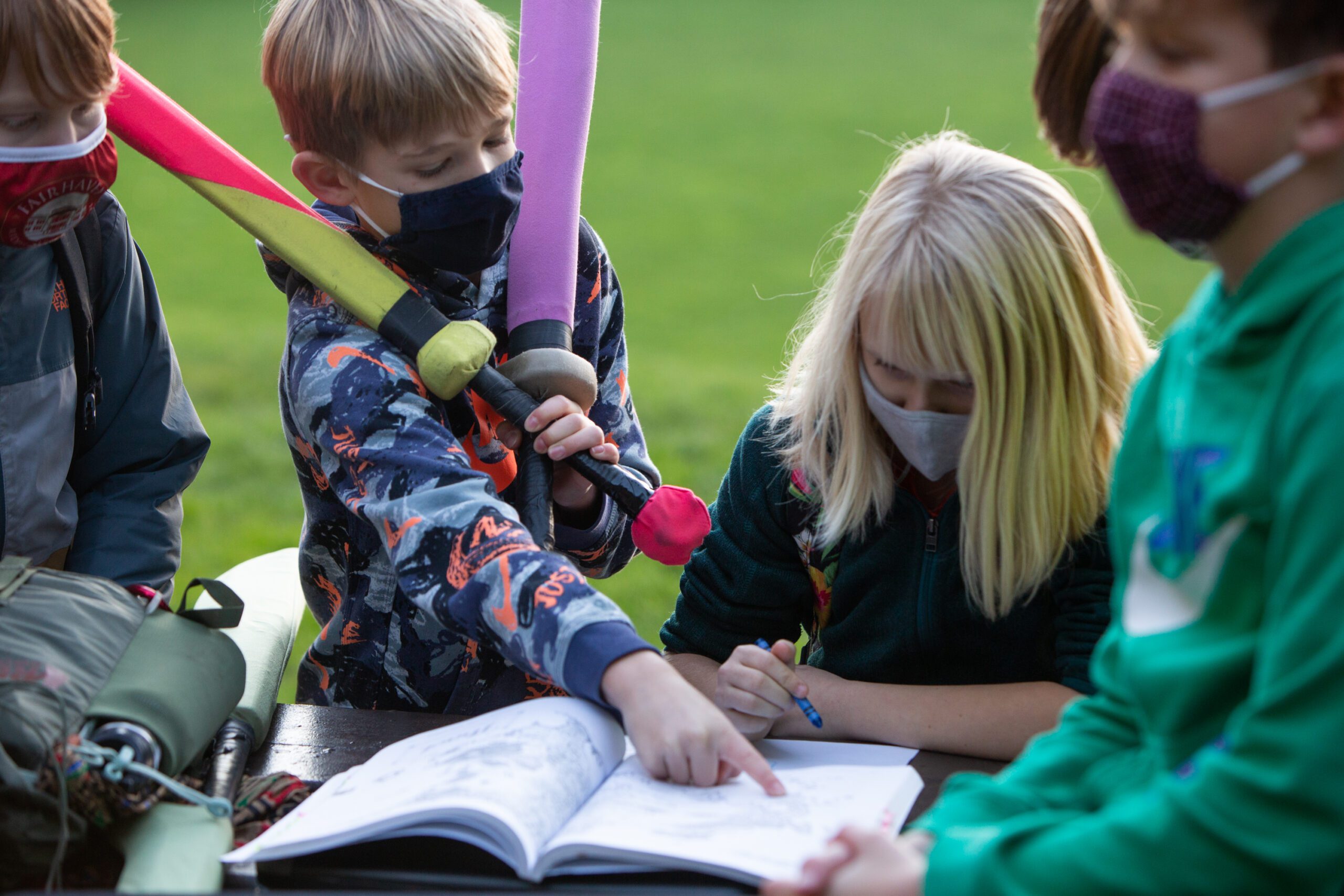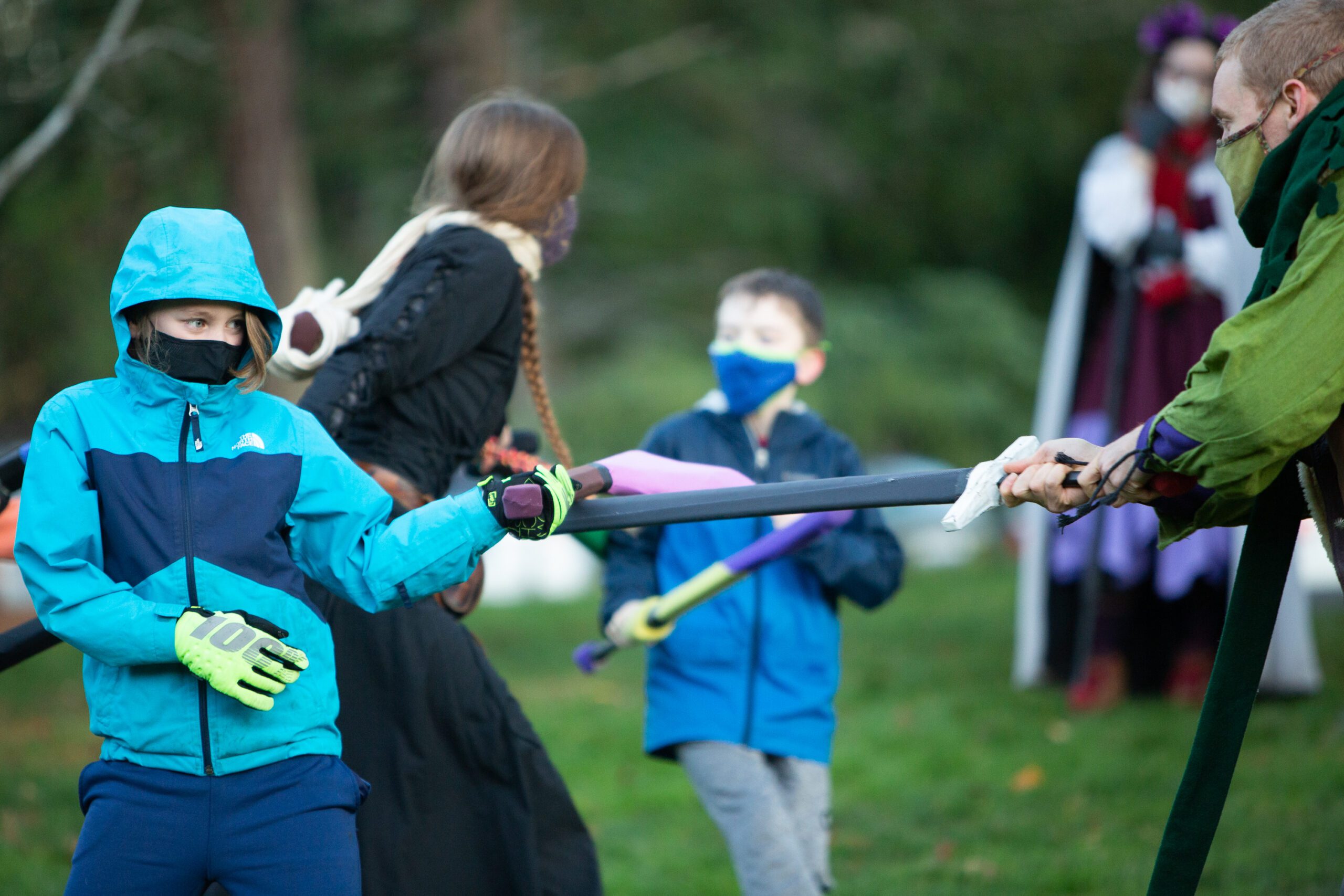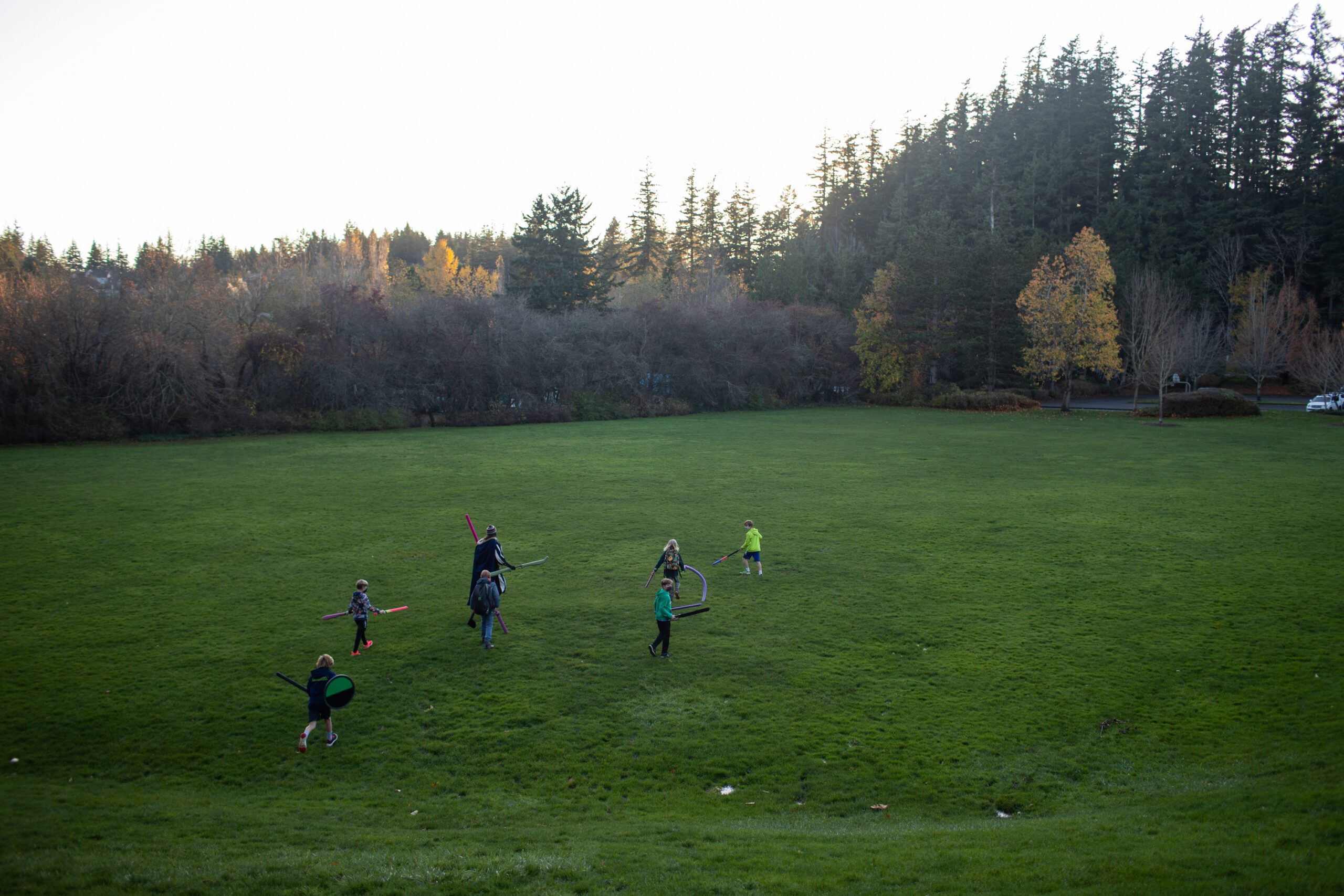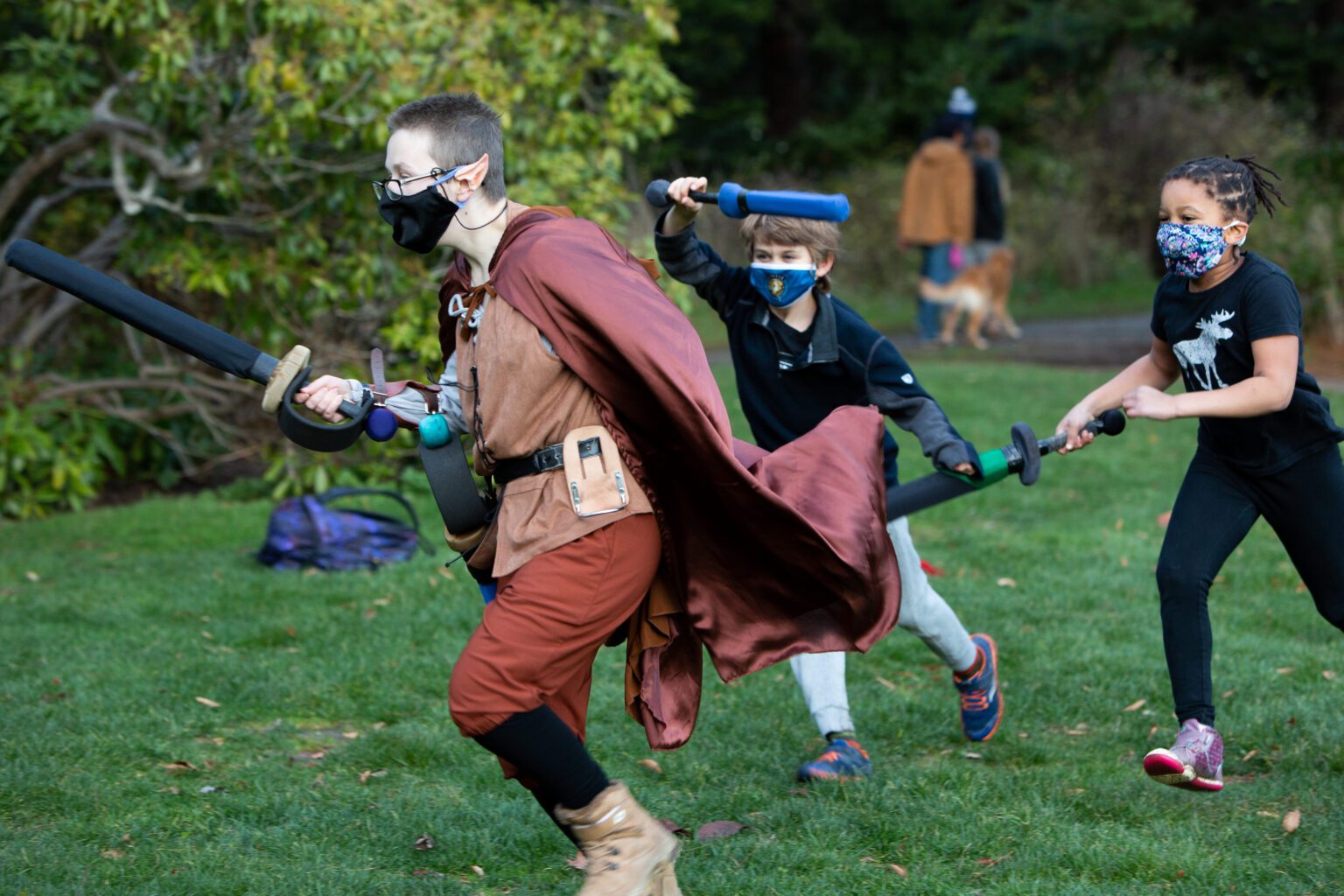A purple cape ripples through the air, streaming behind a young child who thrusts a foam sword into the arm of another child, tagging them “out.” The purple cape, and the victory of this match, belongs to a child nicknamed Dogwing. Dogwing is a character embodied by the child, explained simply as “a dog with wings.”
The winter sun starts to sink before the clock turns five. Fairhaven Park is nearly empty, as most have retreated from the crisp air; the only ones left are the large group of children battling each other with foam-sword “boffers,” sending excited squeals into the setting sun.
Kids gather to attend the after-school program: Adventure Quest put on by Majestic Adventures in Bellingham. Adventure Quest is a form of LARPing, or live action role playing, aimed at kids ages 6–18.
“I think a lot of people have at some point been told to stop pretending or that playing in the imagination isn’t OK,” said Adventure Quest director Harper Stone. “I definitely don’t think there is a reason that we have to stop imagining. Storytelling is the most ancient art form that there is. The thing that most fundamentally makes us human is that we tell stories.”
Adventure Quest is interactive storytelling that encourages showing rather than telling. The kids are broken up into small groups, each having a leader who mentors through a quest based on a pre-written story prepared by the leader.
 Arlo VanJaarsveld, left, and Vivian Roche look at a map during a quest. (Hailey Hoffman/Cascadia Daily News)
Arlo VanJaarsveld, left, and Vivian Roche look at a map during a quest. (Hailey Hoffman/Cascadia Daily News)
A quest can be solved through a multitude of different forms: battles, physical challenges, riddles, puzzles or conflict resolutions between differing “nations.”
“You may have a story in mind that you will be going with, but [the kids] will take it in a different direction,” said Jessie Spangler, quest leader. “It can turn out to be a completely different quest in the best way, and I don’t know if I would ever trade that for anything. It’s a lot of fun.”
When Spangler is leading a quest, she chooses from a variety of different characters to embody, but her favorite is Bumble Berry. Spangler explains that Bumble Berry is a pure being who acts as a healer. Bumble Berry has bumble bee wings, but she can’t fly because she happens to be scared of heights.
“All of our characters are some parts of ourselves,” Spangler said. “Being able to say ‘Yeah, I am really good at this thing, but I also accept that I am not good at that thing and that’s OK’ can be a really awesome teaching tool to bring to light for questers.”
Adventure Quest teaches kids through creative and experiential learning. The quests have no one right answer to solve the mission, Stone believes this gives kids the responsible empowerment to find their own version of the answer.
“Storytelling is the most ancient art form that there is. The thing that most fundamentally makes us human is that we tell stories.” — Harper Stone
Stone gave a scenario where the questers go and steal a ship. Throughout this quest, participants earn what happens when they get pursued by the law, or what happens if they are thrown in jail, or if a battle erupts. But they also would learn about the other side of their action.
“Maybe they steal [the ship] and have fun,” Stone said. “But, when they come back, they meet the person whose ship they stole who is getting harassed by the tax collectors because they couldn’t pay the taxes because they’re a fisherman and they needed to sell all the fish in order to get money. There’s often consequences for that in the story, so they get to learn from their actions.”
One benefit of LARPing that both Stone and Spangler agree upon are the inherent consequences that are included within the improvisational quests. Unlike video games, where violence is rewarded, kids learn about the power of their own bodies.
 Participants duel during their quest. (Hailey Hoffman/Cascadia Daily News)
Participants duel during their quest. (Hailey Hoffman/Cascadia Daily News)
Stone understands that while he has seen a transformation of the public’s view on LARPing within the past 10 years for the better, it is still difficult to convey exactly what goes on within a LARPing quest without experiencing one.
“It’s not like ‘sign up for soccer’ and everyone knows it’s soccer, it’s much more involved and complex,” he said.
Adventure Quest has had consistent growth since Stone started the program in 2012. Pre-pandemic summer camp numbers were as high as 80 kids attending camp per week. While during the midst of the pandemic things did slow down, through online quests and the fact that all quests take place outside, the programs have built themselves back up.
Single-day programs at Adventure Quest start at $75 for a five-hour experience; multiple day programs cost up to $350.
 Kids explore Fairhaven Park on their quest. (Hailey Hoffman/Cascadia Daily News)
Kids explore Fairhaven Park on their quest. (Hailey Hoffman/Cascadia Daily News)




